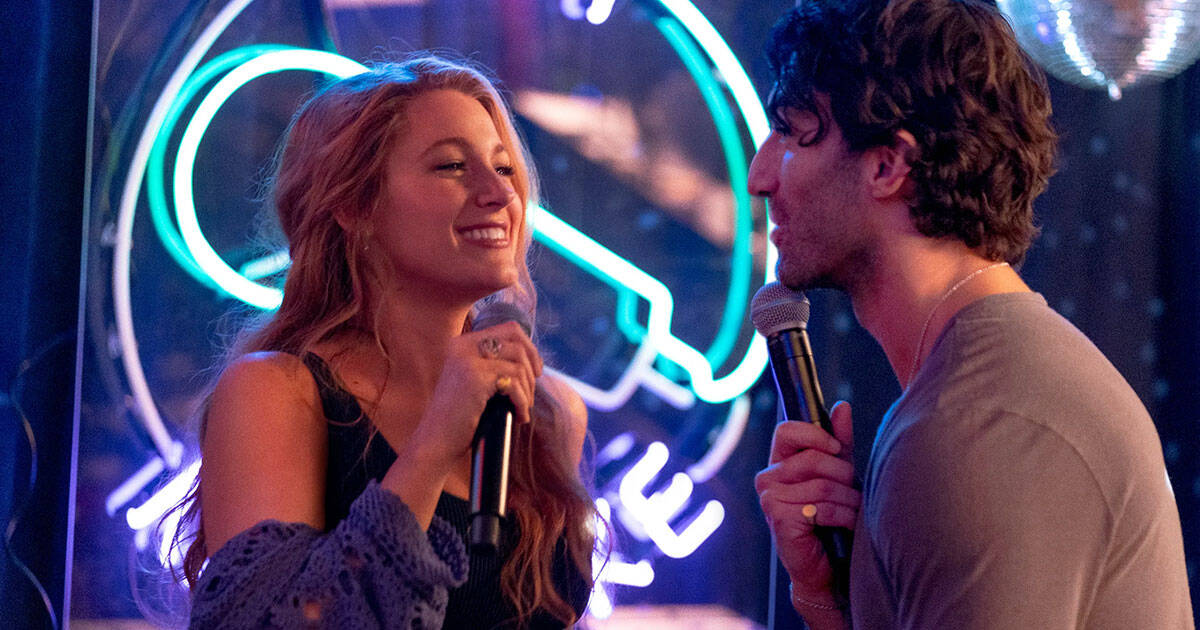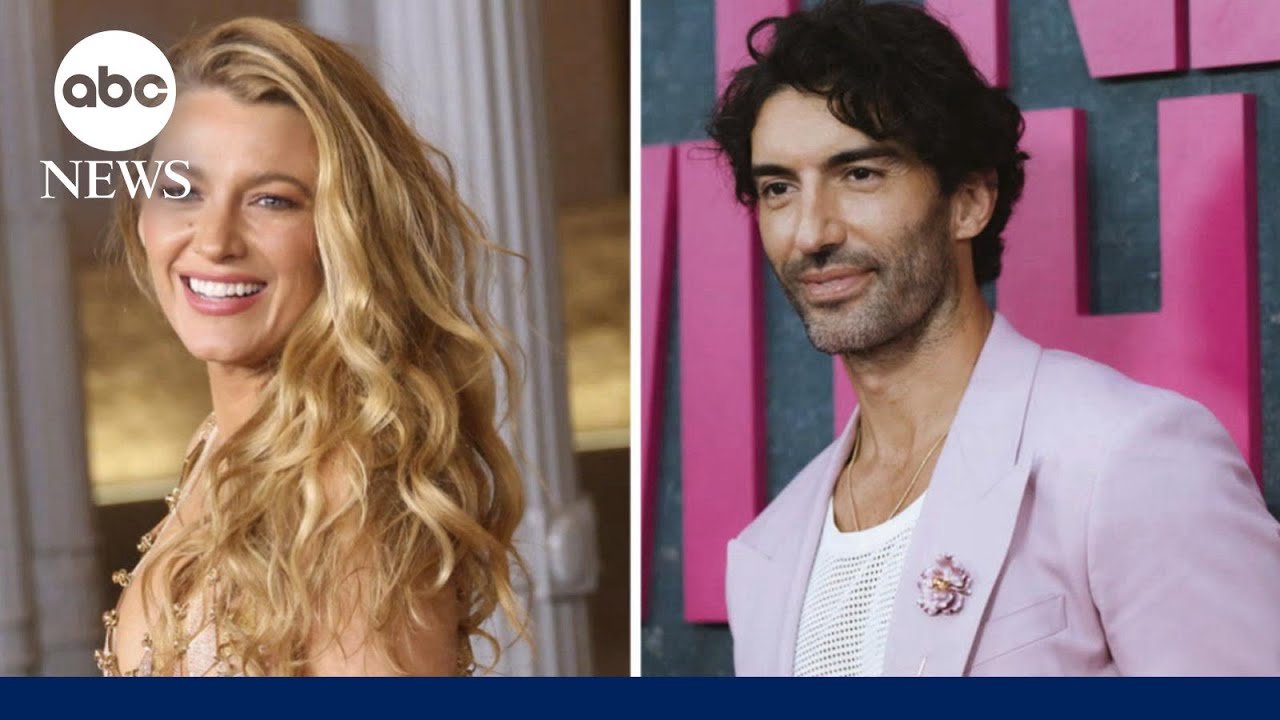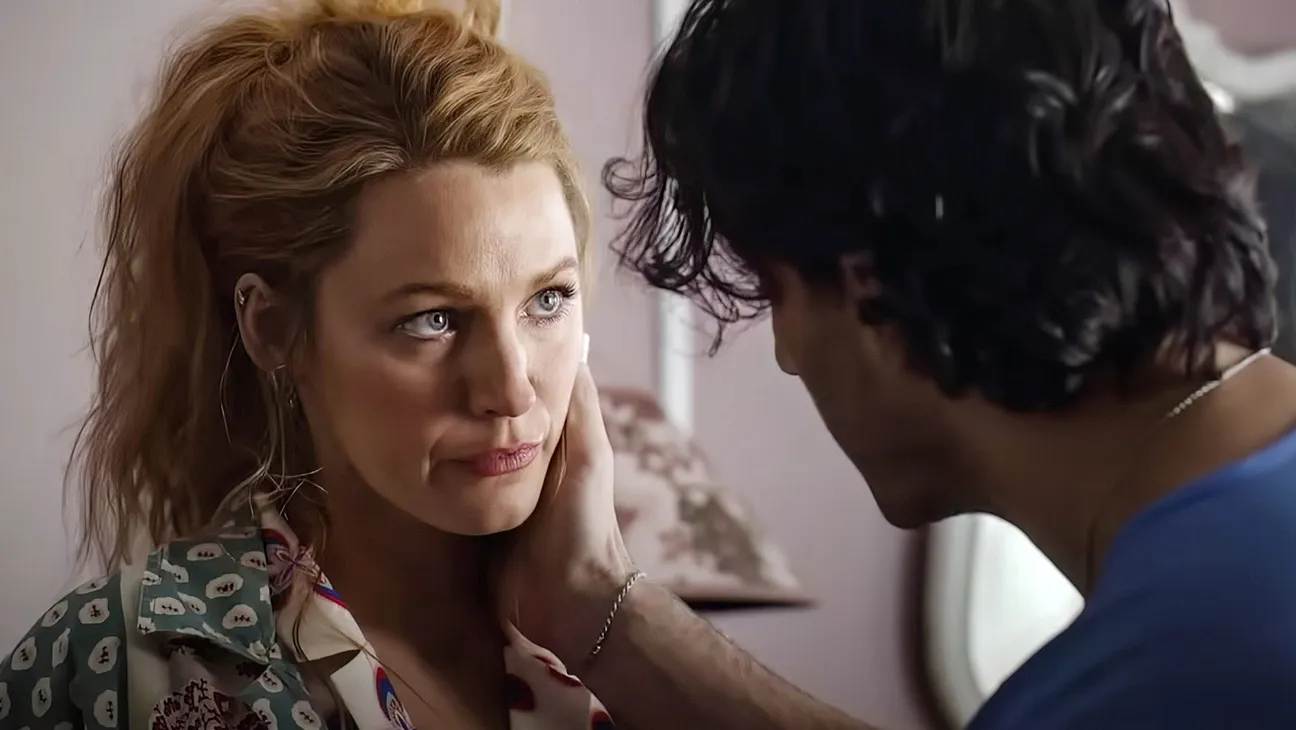It ends with us lawsuit – The “It Ends With Us” lawsuit has sparked a literary firestorm, pitting the rights of authors against the protection of individuals from harm. This enthralling narrative explores the complex legal, ethical, and societal implications of a case that has captivated the book industry and beyond.
The lawsuit, filed by Colleen Hoover, alleges that the novel “It Ends With Us” by TikTok sensation Anna Todd infringes on the copyright of her own work, “Slammed.” The legal battle has ignited a fierce debate about plagiarism, artistic expression, and the boundaries of intellectual property.
Lawsuit Details
A lawsuit has been filed against Colleen Hoover, the author of the popular novel “It Ends with Us,” alleging that the book infringes the copyright of a 2015 novel titled “The Wife Between Us” by Sarah Pekkanen and Greer Hendricks.
The plaintiffs allege that Hoover’s novel contains substantial similarities to their own work, including similar plot points, character names, and themes. They claim that Hoover had access to their novel prior to writing “It Ends with Us” and that she intentionally copied their work.
Filing and Timeline
The lawsuit was filed in federal court in New York on March 15, 2023. A hearing on the plaintiffs’ motion for a preliminary injunction is scheduled for May 5, 2023.
Legal Basis
The plaintiffs are alleging copyright infringement under the Copyright Act of 1976. They claim that Hoover’s novel infringes their exclusive rights to reproduce, distribute, and create derivative works based on their original work.
Legal Arguments
The lawsuit against Colleen Hoover, the author of “It Ends with Us,” centers around allegations of copyright infringement. The plaintiff, Tarryn Fisher, claims that Hoover’s novel bears striking similarities to her own work, “The Love Hypothesis.” Both books feature storylines involving a female protagonist who falls in love with a neurosurgeon.
Hoover’s legal team has denied the allegations, arguing that the similarities between the two books are merely coincidental. They contend that Hoover independently created her novel and that any similarities are due to the common themes and tropes found in the romance genre.
Plaintiff’s Arguments
- The plaintiff’s case rests on the argument that Hoover had access to her work prior to writing “It Ends with Us.” Fisher claims that she shared her manuscript with Hoover’s agent in 2014, and that Hoover subsequently read and commented on the work.
- The plaintiff also points to specific similarities between the two books, including:
- The use of the same character names (e.g., Lily and Ryle)
- The inclusion of a similar plot involving a female protagonist who falls in love with a neurosurgeon
- The use of similar themes and motifs, such as the exploration of domestic violence and the power dynamics in relationships
Defendant’s Arguments
- The defendant’s case is based on the argument that the similarities between the two books are coincidental. Hoover’s legal team contends that Hoover independently created her novel and that she had no prior knowledge of Fisher’s work.
- The defendant also argues that the use of common themes and tropes in the romance genre does not constitute copyright infringement. They contend that the similarities between the two books are due to the fact that both authors were writing within the same genre and exploring similar themes.
- Additionally, the defendant argues that Fisher’s claims are barred by the statute of limitations. They contend that Fisher waited too long to file her lawsuit and that her claims are now time-barred.
Potential Legal Precedents
The outcome of the lawsuit may hinge on the court’s interpretation of relevant legal precedents. One potential precedent is the case of Feist Publications, Inc. v. Rural Telephone Service Co., Inc., in which the Supreme Court held that “a copyright protects only the author’s original expression, not the ideas, plots, or characters that the expression embodies.”
Another potential precedent is the case of Nichols v. Universal Pictures Corp., in which the Ninth Circuit Court of Appeals held that “substantial similarity” between two works is not enough to establish copyright infringement. The court held that the plaintiff must also show that the defendant copied the plaintiff’s work.
Impact on the Book Industry: It Ends With Us Lawsuit
The lawsuit against Colleen Hoover’s “It Ends with Us” has sent shockwaves through the book industry, raising concerns about the potential implications for authors, publishers, and readers alike. The outcome of the case could have far-reaching effects on the way books are written, published, and consumed.
One potential impact is the chilling effect it could have on authors’ creativity. If authors fear that their work may be subject to legal challenges, they may be less likely to take risks or explore controversial topics. This could lead to a narrowing of the range of voices and perspectives represented in literature.
Impact on Publishers
Publishers may also be affected by the lawsuit. If they are held liable for copyright infringement, they may be more cautious about acquiring and publishing books that could potentially be subject to legal challenges. This could make it more difficult for new and emerging authors to get their work published.
Impact on Readers
Readers may also be impacted by the lawsuit. If the outcome of the case limits the availability of certain books, readers may have fewer choices and less access to diverse perspectives. This could have a negative impact on the reading experience and limit the ability of readers to engage with a wide range of ideas and stories.
Ethical Considerations
The lawsuit against Colleen Hoover’s “It Ends with Us” has raised important ethical questions about freedom of speech, censorship, and the rights of authors.One of the primary concerns is the potential for the lawsuit to have a chilling effect on artistic expression.
If authors fear that their work may be subject to legal challenges, they may be less likely to take risks or explore controversial topics. This could lead to a narrowing of the range of ideas and perspectives that are available to readers.Another ethical concern is the balance between the rights of authors and the rights of individuals who may be harmed by their work.
In the case of “It Ends with Us,” the lawsuit alleges that the book’s portrayal of domestic violence is harmful and could trigger negative emotions in victims of abuse. While it is important to protect the rights of authors to express themselves, it is also important to ensure that their work does not cause undue harm to others.The lawsuit against “It Ends with Us” has highlighted the complex ethical issues that can arise when artistic expression intersects with the rights of individuals.
It is a case that will likely be closely watched by both authors and advocates for freedom of speech.
Freedom of Speech
The First Amendment to the United States Constitution protects freedom of speech, including the right to express oneself through artistic works such as books. However, this right is not absolute and may be limited in certain circumstances, such as when speech poses a clear and present danger to others or when it is defamatory or obscene.In the case of “It Ends with Us,” the lawsuit does not allege that the book is defamatory or obscene.
Instead, it argues that the book’s portrayal of domestic violence is harmful and could trigger negative emotions in victims of abuse. This raises the question of whether the government has a legitimate interest in regulating speech that may cause emotional harm.
Censorship
Censorship is the suppression of ideas and information that are considered objectionable or dangerous. Censorship can take many forms, including banning books, filtering internet content, and pressuring authors to self-censor.The lawsuit against “It Ends with Us” has raised concerns about the potential for censorship.
If the lawsuit is successful, it could set a precedent for other lawsuits against books that deal with controversial topics. This could lead to a climate of fear and self-censorship among authors, which would ultimately harm the public’s access to a wide range of ideas and perspectives.
Rights of Individuals
While freedom of speech is an important right, it is not absolute. Individuals also have the right to be protected from harm, including emotional harm. In the case of “It Ends with Us,” the lawsuit alleges that the book’s portrayal of domestic violence is harmful and could trigger negative emotions in victims of abuse.This raises the question of whether the government has a legitimate interest in protecting individuals from emotional harm caused by speech.
If the lawsuit is successful, it could set a precedent for other lawsuits against speech that causes emotional harm. This could lead to a broader definition of what constitutes harmful speech, which could have a chilling effect on free speech.
Public Opinion and Media Coverage
The lawsuit against Colleen Hoover’s novel “It Ends with Us” has sparked significant public interest and media attention. The public reaction has been largely divided, with some supporting the lawsuit’s claims of plagiarism and others defending Hoover’s work.The media coverage of the case has been extensive, with major news outlets such as The New York Times, The Washington Post, and CNN reporting on the developments.
The coverage has generally focused on the legal arguments of both sides, as well as the potential impact on the book industry.
Public Opinion
Public opinion on the lawsuit has been polarized, with many people expressing strong opinions on both sides. Some members of the public believe that Hoover’s novel infringed upon the copyright of the plaintiff’s work, while others maintain that Hoover’s work is sufficiently original to be considered a separate work.
Media Coverage
The media coverage of the lawsuit has been largely objective, with most outlets presenting both sides of the argument fairly. However, some critics have argued that the coverage has been biased towards Hoover, given her status as a popular and successful author.The media coverage has also focused on the potential impact of the lawsuit on the book industry.
Some commentators have expressed concern that the lawsuit could lead to a chilling effect on creativity, as authors may become more cautious about writing books that could be accused of plagiarism.
Future Implications
The lawsuit against Colleen Hoover’s novel “It Ends with Us” has the potential to have long-term implications for the legal landscape, the book industry, and society as a whole.The outcome of the case could set a precedent for future legal disputes involving similar issues, such as copyright infringement and the fair use of copyrighted material.
It could also impact the way that authors and publishers approach the use of potentially controversial or sensitive material in their works.
Legal Landscape
The lawsuit could have a significant impact on the legal landscape surrounding copyright law. If the court finds in favor of the plaintiff, it could make it more difficult for authors and publishers to use copyrighted material without obtaining permission from the copyright holder.
This could lead to increased litigation and could make it more expensive for authors and publishers to produce creative works.
Book Industry, It ends with us lawsuit
The lawsuit could also have a significant impact on the book industry. If the court finds in favor of the plaintiff, it could make publishers more hesitant to publish books that contain potentially controversial or sensitive material. This could lead to a decrease in the diversity of books available to readers and could make it more difficult for authors to express their creative visions.
Society as a Whole
The lawsuit could also have a significant impact on society as a whole. If the court finds in favor of the plaintiff, it could send a message that it is not acceptable to use copyrighted material without permission. This could lead to a decrease in the amount of creative content available to the public and could make it more difficult for people to access information and ideas.
Final Thoughts
The outcome of the “It Ends With Us” lawsuit has far-reaching implications for the literary world. It could set a precedent for future copyright disputes and shape the balance between creativity and protection. Moreover, the case has raised important questions about the ethics of borrowing from other works and the responsibility of authors to respect the originality of their peers.
Quick FAQs
What is the basis of Colleen Hoover’s lawsuit against Anna Todd?
Hoover alleges that Todd’s novel “It Ends With Us” infringes on the copyright of her own work, “Slammed,” claiming similarities in plot, characters, and themes.
How has the public reacted to the lawsuit?
The lawsuit has sparked a polarized public response, with some supporting Hoover’s claims of plagiarism and others defending Todd’s right to artistic expression.
What are the potential implications of the lawsuit for the book industry?
The outcome of the case could set a precedent for future copyright disputes, potentially impacting the way authors approach the use of similar themes and ideas.


